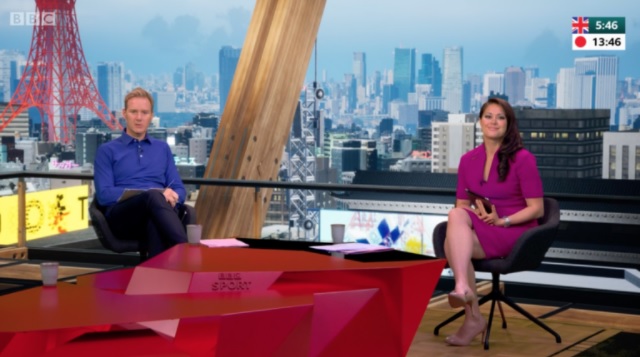
I was one of those who was never quite sure the Olympics would happen this year so hadn’t built up excitement – but now it is over I feel sad that cartoons will be back on our screen over breakfast instead of Dan Walker and Sam Quek chatting over a montage of overnight athletic feats. This Olympics felt rather different – and not just because of the face masks, lack of spectators and the athletes putting on their own medals – here are eight of the things that felt different – and I loved.
Fun
It showed some of the fun of sport. Of course there was a huge amount of effort and hard work but the joy we saw in the faces of athletes achieving their new personal bests, or simply doing ok after the strangest and often the most stressful 18 months of their lives illustrates the pleasures sport can bring.
Reality
The Olympics showed even the very best athletes don’t hit perfect. No-one is scoring perfect scores because perfect doesn’t exist. They did the absolute best they could in that moment – and that is all anyone can ask of any of us.
Self-identity
We will do well and have higher mental wellbeing when we are more than an athlete and when we see ourselves having lots of roles. I loved seeing all the photos of Tom Daley knitting. For years (maybe forever) he will be known as Tom Daley the diver, but when he can add to that; knitter, dad and husband the diving stops feeling like it is influencing his self-worth and he can relax more, enjoy the process better – and this showed in his great performances.
Vulnerability
1 in 4 of us will experience a mental health condition each year. Of the 11,000 athletes at the Olympics that is over 2,500 who will have struggled in some way over the last year. And that is in a normal year – 2020-21 was not a normal year – it was a pandemic year. It was full of lost opportunities, lack of competition experience, unexpected stressors and reduced numbers of coping mechanisms – so the number may well be higher. Additionally, when we are in a difficult environment and have experienced any trauma we feel less able to handle the stressors we come up against. We saw this with a number of athletes not being able to perform at their best.
What was encouraging was they had the strength to talk about their vulnerabilities. Instead of pretending they had a physical injury (as others may have in the past) they spoke out about what was actually going on and, in doing so, normalising it for the rest of us. It helps us realise if some of the most accomplished, determined, amazing people on the planet can struggle at times then it is ok for us to as well.
Mixing
I loved seeing men and women competing together in the same teams; mixed relays in swimming, triathlon and on the track showed that we really can all be in it together.
New sports
Loved seeing the BMX, the Skateboarding and especially the speed climbing. Highlighting newer sports through the Olympics helps bring in new people and open up sport to a whole new group of people.
Support
Sometimes in sport we get to see an athlete leap over the barriers to give their mum and dad a hug – this time we got feeds from the athlete’s home, club or local pub with their entire support system crowding round in tears. A lovely reminder that sport is not just about the athlete but everyone who helps them along the way.
True competition
The Latin root of “compete” comes from “com” and “petere” meaning ‘together’ and ‘seeking’ suggesting that competing was not originally about beating others but working together to create something better. This is often lost when everything comes down to scores, results and trophies so it was wonderful to see Italy’s Gianmarco Tamberi and Mutaz Essa Barshim of Qatar share the gold medal in the men’s high jump rather than having a jump-off. It showed the true spirit of the Olympics.
Now – two weeks of cartoons and then onto the Paralympics.

Recent Comments